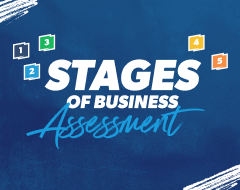Employee Empowerment: Why It Matters and 12 Ways to Empower Your Team
9 Min Read | Nov 7, 2024

Employee empowerment. Now that’s a term you could take a whole lot of ways. Done wrong, it looks like a wild west rodeo show where team members charge into work whenever they want, shoot from the hip all day, then ride off into the sunset leaving chaos behind them. But done well, employee empowerment frees your team to make decisions, handle responsibilities, and use their talents to hit important business goals like expert sharpshooters.
You’re not alone, though, if you’re confused by the concept of empowering employees. Since COVID-19 hit the fan in 2020, the workforce has taken some weird twists and turns—in the form of mass resignations, quiet quitting and work-from-home setups that don’t always work. So how do you empower your employees so they feel valued and trusted while giving them the guardrails and guidelines that keep them moving in the right direction to reach your business goals?
We’ll get to that. But first, let’s clear up any confusion about what employee empowerment should look like. Then we’ll walk through 12 proven ways to build it into your leadership style and company culture.
Related articles:
What Is Employee Empowerment?
Employee empowerment sounds fancy, but it’s actually pretty simple. You empower your employees when you give them the freedom, resources and clear expectations they need to do their best work. They know what you expect them to do, and you’ve given them the training and the go-ahead to do it. You also give them regular, productive feedback to build their decision-making skills so they can impact processes and generate great ideas for your business.
Related article: What Is Decision-Making?
Ready to Level Up Your Business?
Find out your Stage of Business with our free assessment and get free resources to help you level up by focusing on the right things at the right time.
12 Ways to Empower Your Employees and Boost Employee Success
If that’s what real employee empowerment can do, bring on an empowerment revolution, right? Check out these 12 ways you and your leadership team can become empowerment engines and set your team up to give their best.
Set and model healthy expectations
1. Hire well. How do you build a culture of excellence? Start by hiring rock stars. Look for smart, talented, humble people who are fired up to do high-quality work with other rock stars. And communicate those values from the screening process to onboarding to daily operations.
2. Clarify roles. Don’t assume people know how to do things your way. Role clarity means spelling out responsibilities and clearly communicating what winning looks like.
3. Keep a handle on work-life balance. When you lead your team to have a healthy work-life balance, they’ll perform better and feel more satisfied.1 Send a clear message that while you’re at work, you’re working on work. And when you’re home, you’re all in at home. A “be where you are” expectation empowers your team to be (fully) where they are.
Train for and model what you want to reproduce
4. Lead with integrity. If you expect people to conduct themselves with integrity, lead with integrity. Loyalty is born and a quality culture occurs when the leader follows through in a predictable, positive and proactive way on every issue and opportunity.
5. Develop your team. About 65% of workers believe employer-provided upskilling is very important.2 (By upskilling, we mean training your people with new skills and coaching them to improve in areas they’re already good at.) Not only does upskilling challenge your team members and make them more competitive in their fields, but it also shows that you value them.
Related article: Why Business Owners Need a Vacation (and How to Plan Yours)
You probably thought running a business sounded fun—until you realized it would actually run you. Discover the EntreLeadership System—the small-business road map that takes the guesswork out of growth.
6. Reward good work. When a team member consistently brings their A game, reward their effort with more opportunities to grow—in the form of greater authority, bigger and more responsibilities or even an entirely new role.
Give people the go-ahead and support to do their jobs
7. Delegate—the right way. Your business will never grow beyond your ability to train and trust your team to share responsibilities so everyone gets more done. Keep in mind, though, that delegation isn’t about pushing off what you don’t like to do. It’s about recognizing your team members’ skills and abilities, then trusting them to take on more responsibilities.
8. Emphasize the self-employed mentality. Teach your team members to own not just their role but also the success and well-being of your business. Empowered employees pick up the trash they see on the ground coming into work. They look at company profits and expenses as factors that are within their power to influence. And they see their job as a chance to do what they do best every day to reach the company’s goals.
9. Ask for input. As the saying goes, “If you want to go faster, go alone. If you want to go farther, go together.” That goes for learning from the opinions, skills and expertise of the people you hired. Input can be as simple as doing feedback surveys after events. Or getting a handful of team members to share what they know about a new business tool you’re considering. It could also be hashing out a business problem with your sales team, then trusting them to solve it. With regular input, your team will know their insights count—and you’ll make better decisions.
Provide feedback and vision so your team keeps growing
10. Give regular feedback. As a great leader, you care about how your team is doing. But you may not always do the best job checking in with them when you’re busy putting out fires all day. Regular meetings and conversations keep you and your team members in sync. Use annual reviews to look at high-level performance and give them a chance to share ideas and concerns. But also build in weekly or biweekly one-on-ones for real-time feedback—and celebrating wins.
11. Communicate well. By this we mean a few things: Handle hard conversations with individual team members quickly, calmly and privately. That’s called healthy conflict, and it’s essential for the growth of your team and your business. Also, have regular conversations with your entire team about your mission, vision and values—because when they’re confident about where you’re headed as a company, they’ll rally with you to get there.
12. Show appreciation. It takes just a few minutes and costs almost nothing to say thank you for a job well done. Your attitude of gratitude shows you care and boosts your team members’ confidence and productivity—and it boosts the likelihood they’ll stay with your business. It’s also a great way to reward behaviors you want your team members to keep doing!
Benefits of Employee Empowerment
Building an empowered team isn’t easy. Leaders have a lot of work to do to find great people and consistently pour into them. But the payoff—benefits like greater unity, improved creativity, motivated employees and a stronger bottom line—is worth it.
Greater Unity. When you show you care about employee success and believe in your team, they feel safe and trust you in return. That trust breeds unity, and unity makes you an unstoppable force in your market!3
Armando Lopez, senior executive director of human resources at Ramsey Solutions, encourages business leaders to get to know their people as people, not as cogs in a machine. “Over time, that rapport helps you see their strengths so you can develop their potential,” he explains. “Before you know it, you’ve gained credibility and trust, then influence and a unified partnership toward your mission.”
Improved Creativity. Empowered team members also solve business problems with creativity and confidence. Try new copy and artwork concepts? No problem. Run more split tests? Abso-freaking-lutely. Squeeze more bang out of your digital marketing bucks? On it! Why? Because they know you’ll hear their ideas and value their input. And that’s just what they need to think fearlessly and innovate responsibly.4
Related article: How to Delegate to Your Team
Motivated Employees. What’s another by-product of empowerment? Hungry, driven team members who take on extra projects and go the extra mile to serve their teammates and customers. Heck, even off the clock they’ll probably rave to anyone who’ll listen about being part of your company and doing work that matters.
Related article: Leadership Development: What It Is and 7 Signs You Need to Invest in Leadership Team Development
Stronger Bottom Line. Companies who empower employees are just more profitable—23% more, in fact.5 Workers who feel micromanaged and beaten down, on the other hand, check out. That disengagement costs the global economy $8.8 trillion, or 9% of the GDP.6 That’s a lot of numbers to say empowerment is a really big deal. Empowered teams are engaged in their work. And that leads to greater job satisfaction, higher productivity and stronger retention.7
Related article: Leadership Traits and Tips to Help You Become a Successful Leader
Employee Empowerment Mistakes to Avoid
As great as empowering employees can be for your business, beware of these three empowerment mistakes:
- Increasing responsibilities before you build rapport, credibility and trust: Instead of your team member feeling empowered, they’ll feel burdened and stressed. Even worse, they may worry they can’t come to you for help.
- Turning a team member loose to “go be great” before they’re even up to speed in their role: If you aren’t helping, you aren’t helping. In other words, if you haven’t given them clear expectations and the training and resources to succeed, they probably won’t.
- Passing off work you don’t like to do in the name of “empowerment”: That’s just gross. If you need help and they’re a better fit for the job, say so—and make it a win for everyone. Do you trust them to handle a task so you’re freed up for other important responsibilities? Are they better wired to make a process run smoother? More energized with fresh ideas to lift a project? That’s awesome! Empower them to do more—and give them a pay bump, new title or path to a bigger role. But don’t just dump on them. Great leaders are also great people builders.
Be an Empowering Leader
One final word to empower you: Ultimately, employee empowerment is a leadership thing, not an HR thing.8 That’s right. More than any other factor in your workplace, you and your leadership team have the power to influence productivity and morale for good.9
Next Steps
- Watch or listen to The EntreLeadership Podcast and hear Dave Ramsey give advice on a variety of leadership and business-related topics—including empowering your employees.
- Take the Stages of Business Assessment. It'll help you find out where your business stands so you’ll know what to focus on next to empower your employees to be and give their best.
- Join EntreLeadership Elite and get access to tools and resources that will help you empower your team and take your business to the next level.
Did you find this article helpful? Share it!

We Hear You!
We’re considering adding the ability to save articles to your Ramsey account.

